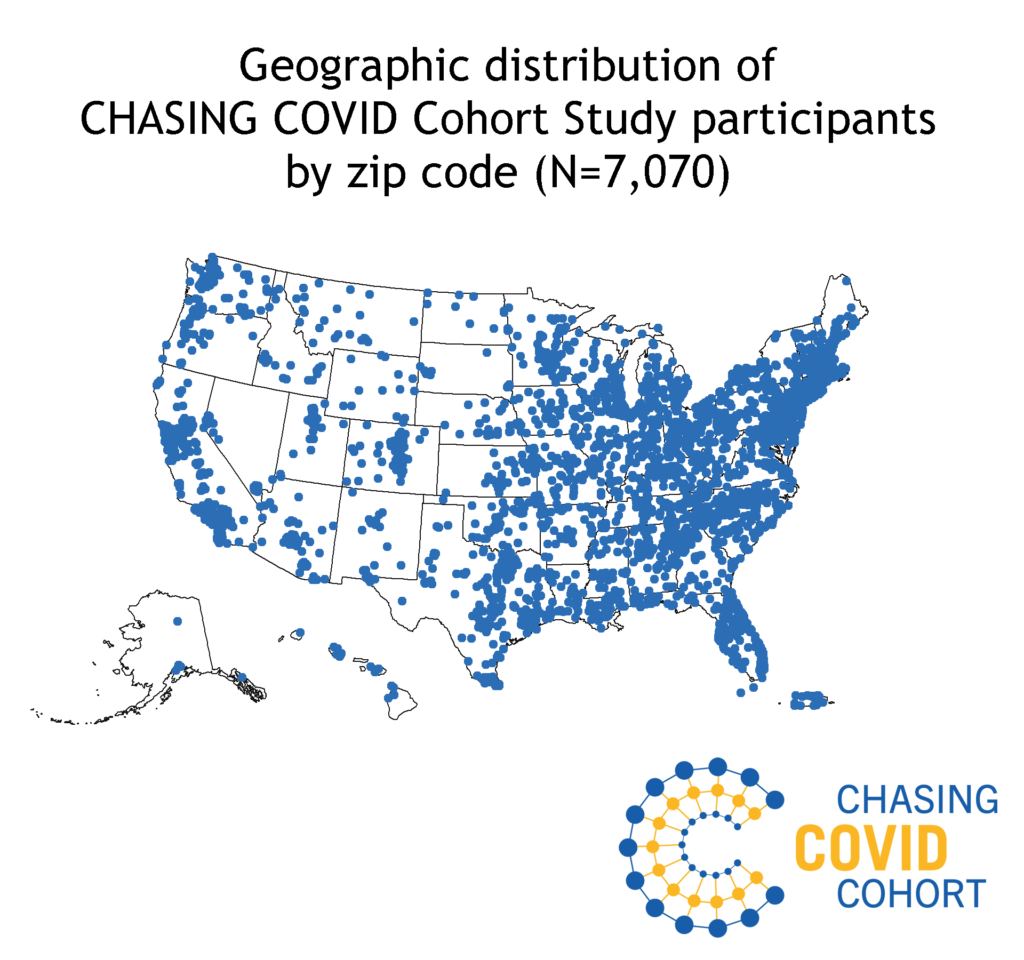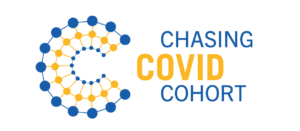In response to the COVID-19 pandemic, a team of researchers at the CUNY Institute for Implementation Science in Population Health and the CUNY Graduate School of Public Health and Health Policy started enrolling participants into the CHASING COVID Cohort (C3) study on March 28, 2020. In just 3 weeks, >7,000 people enrolled in the study, representing every US state, Puerto Rico, and Guam. Anyone aged 18 or over and residing in the 50 US States, the District of Columbia, Puerto Rico, and Guam were eligible to enroll. The C3 is a fully online study; participants were enrolled using internet-based recruitment strategies. The first post-enrollment follow-up assessment is now being conducted.

Why was the C3 study launched?
It is vital that we understand the impact of the public health response to the coronavirus pandemic on SARS/CoV-2 clinical outcomes as well as other outcomes. With the help of our participants, we can see what strategies might be working across the country over time.
We have much to learn about the SARS/CoV-2 pandemic and how best to prepare for and respond to future pandemics
The public health response to COVID-19 in the US has evolved very rapidly over the last two months, and input from C3 participants will allow us to describe how state and local policies are being received and implemented on the individual and household level. We don’t know how policies may change moving forward when jurisdictions begin to open up, but the C3 study is well-positioned to monitor shifting public health and government actions and to learn from the unfolding pandemic.
We are pursuing grant funding so that we can offer antibody testing to our participants as part of the one-month and three-month follow-up assessments. This will allow us to check for the rate of new infections relative to local transmission rates and relative to the public health guidelines in place at the time of each test. We also will assess whether having antibodies to SARS/CoV-2 may be protective against developing severe COVID disease in the short term (3-4 months).
A unique study, launched in the middle of a pandemic
C3 participants are part of a national longitudinal study of the COVID-19 pandemic. Many of the questions we hope to answer, such as whether SARS/CoV-2 antibodies are protective, can only be assessed during an epidemic when there is active transmission and by following up with the same participants at multiple points in time. Continued involvement of our study participants is extremely valuable and important to this process. Together we are documenting important aspects of this pandemic, and making discoveries that we can apply now and in the future.
Click here to receive study updates from the C3 team.
The C3 team is actively applying for research funding from the NIH and other sources to support this work. If you would like to help support this work in the meantime, please follow this link.
About the Institute for Implementation Science in Population Health at the City University of New York
The CUNY Institute for Implementation Science in Population Health (ISPH) was founded on the notion that substantial improvements in population health can be efficiently achieved through better implementation of existing strategies, policies, and interventions across multiple sectors. We study how to translate and scale-up evidence-based interventions and policies within clinical and community settings in order to improve population health and reduce health disparities. CUNY ISPH. Pursing population health gains through better implementation. www.cunyisph.org. Follow us on Twitter: @CUNYISPH.
